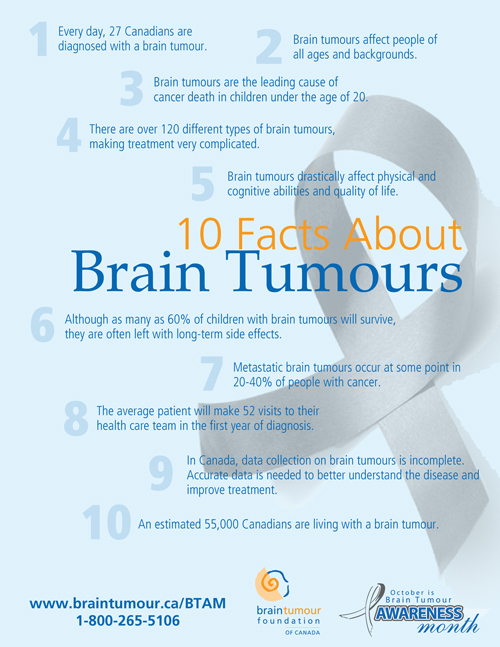When you really think about it, illnesses that affect the brain are particularly devastating. In fact, your ability to think about it, is something that could be affected first with a brain tumour.
Our brain is what makes us who we are. It's what allows us to experience life. The joys of love, the heartache of loss, the smell of a home-cooked meal, the sounds of a child's laugh or an endorphin release from a run. Our brain does all this and more.
So when something impacts our brain, it can change any or all of these things. This is why a brain tumour can be so devastating. This is also why the estimated 55,000 Canadians who are living with a brain tumour, or surviving a diagnosis, like me, are working so hard this month to raise awareness.
By virtue of their delicate location, a brain tumour can dramatically alter an individual's physical and cognitive abilities, as well as quality of life for them and their families. My own personality changed before I was diagnosed and as I began treatment, so both my family and I know first-hand just how difficult this can be.
October is Brain Tumour Awareness Month in Canada and one issue that all of us who have been affected believe in, is sharing the impact of a brain tumour. The disease is unpredictable and complex, which makes treatment and recovery even tougher. Depending on not only the grade of the tumour, but also its placement, a brain tumour and the required treatment (surgery, radiation or chemotherapy) can have an incredible impact on day-to-day living and the long term.
Learning to cope with these changes is an important aspect of the disease, regardless of the stage of someone's treatment or survivorship. It could mean mean re-learning to read or speak, or drive or knit. For me, I needed to re-learn to walk and talk - no easy feat for a formerly active high school athlete. But I did it.
For others, learning to correctly interpret emotional cues from family and friends can become their biggest obstacle. "After my surgery, my behaviour changed and many friends and family members drifted away..." remembers one Ontario survivor about the emotional pain this caused.
I truly believe that the more we as survivors or patients talk about brain tumours, and the more others talk about them, the more visible the brain tumour community will be and more things will improve for us all.
Join me to raise our voices together, in support of the estimated 55,000 Canadians living with a brain tumour during October's Brain Tumour Awareness Month. We need your help. You can start by learning (and then sharing) the top 10 critical facts, in the image below.
